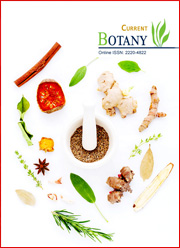Evaluations of Phytochemical Constituents and Antimicrobial Activity of Butea monosperma (Fabaceae)
Abstract
The present paper deals with the physico-chemical, quantitative phytochemical determination and antimicrobial activity of Butea monosperma (Lamk.) Taub., an important medicinal tree in India. The in-vitro antimicrobial activity of ethanol, chloroform and petroleum ether extracts were studied using MIC (Minimum Inhibitory Concentration) by well diffusion method against pathogenic microbes viz., Escherichia coli, Pseudomonas aeruginosa, Staphylococcus aureus and Bacillus subtilis. Among the solvents used, the ethanol extract was found to be more effective against Bacillus subtilis, and Staphylococcus aureus. The petroleum ether extract did not inhibit Pseudomonas aeruginosa, while the Escherichia coli did not inhibit any type of extract. Activities of the various extracts were comparable to those of standard antibacterial agent ampicillin as control. The results provided evidence that the studied plant might indeed be potential sources of phytochemical constitution and antimicrobial agents and showing that this plant can be used as a complementary source for traditional medicines.
Key words: Butea monosperma, Antimicrobial, Physico-chemicals, Phytochemical
D. A. Dhale et al. Evaluations of Phytochemical Constituents and Antimicrobial Activity of Butea monosperma (Fabaceae). J Phytol 2/12 (2010) 17-21.




 .
.